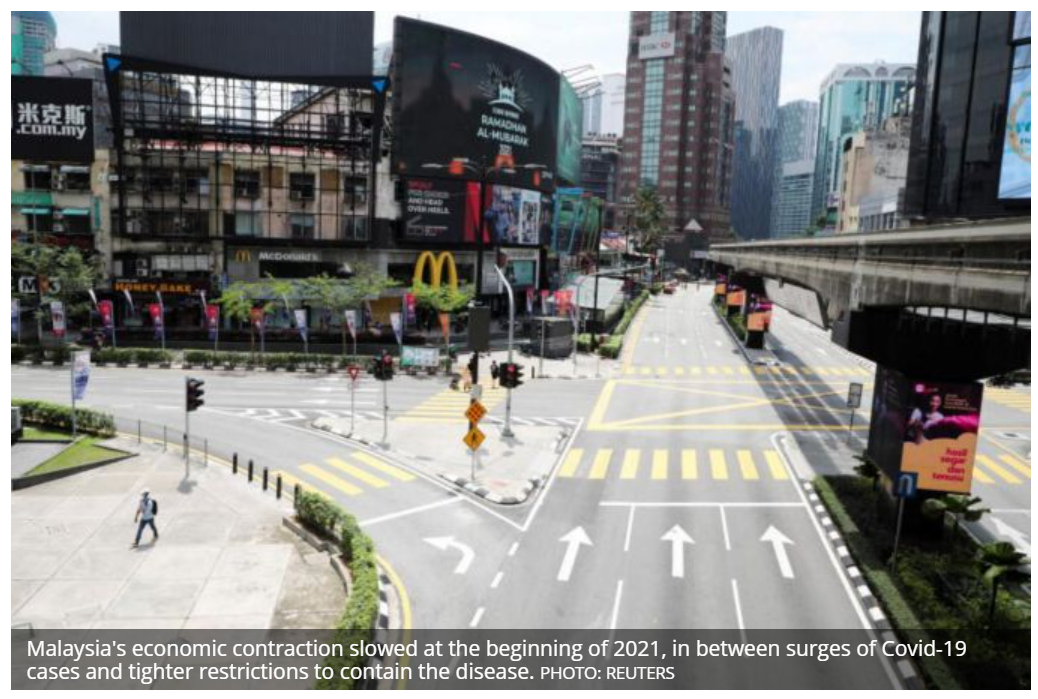Malaysia’s economy shrinks less than expected in Q1, but Covid-19 surge adds pressure
MALAYSIA’S economic contraction slowed at the beginning of 2021, in between surges of Covid-19 cases and tighter restrictions to contain the disease.
Gross domestic product (GDP) shrank 0.5 per cent in the first quarter from a year earlier, Malaysia’s central bank said on Tuesday.
Compared to the previous three months, the economy grew 2.7 per cent on a seasonally adjusted basis, beating expectations for 0.6 per cent growth.
“The economic recovery remains on track,” central bank governor Nor Shamsiah Yunus said in a briefing.
“We have said that there will be speed bumps along the way, but we expect growth to remain within the 6 per cent to 7.5 per cent” forecast range for the full year.
The economic reading comes a day after Prime Minister Muhyiddin Yassin announced nationwide movement restrictions to stem the latest surge in cases, with the next movement control order set to take place from May 12 to June 7.
The economy will continue to be benefit from strong external demand and improving domestic conditions, Ms Nor Shamsiah said.
Bank Negara Malaysia last week held its benchmark interest rate at a record-low 1.75 per cent for a fifth straight meeting amid the fresh surge in cases.
It said risks remain “tilted to the downside”, citing uncertainty over the course of the pandemic and potential challenges for the country’s vaccine rollout, with the economy returning to pre-Covid levels by the middle of the year.
Daily cases this month topped 4,000 for the first time since February, and the country is struggling with the pace of vaccinations.
Less than 3 per cent of Malaysia’s population had completed their vaccination series as of May 8, according to data compiled by Bloomberg. That tally trails neighbours Indonesia and Singapore, and puts Malaysia at risk of falling well short of its vaccination goals for the year.
Containment measures in January cost the economy RM700 million (S$225.7 million) a day, even with essential sectors still operating. Those measures were eased in February.
While all sectors of the economy will stay open under the latest measures, the new containment efforts could undo recent progress.
The manufacturing Purchasing Managers Index hit a record high in April, a month after exports registered the strongest year-on-year growth in almost four years.
Manufacturing sales rose at their fastest pace in nearly four years in March, and an index of industrial production gained the most in March since July 2013.
There were other announcements made during the briefing by Ms Nor Shamsiah.
Inflation will rise to 6.5 per cent-7 per cent in the second quarter, before falling back below 5 per cent in June. Headline inflation for the year will average 2.5 per cent to 4 per cent.
It was also revealed that all sectors of the economy improved in Q1. Manufacturing rose 6.6 per cent year-on-year, while agriculture was up 0.4 per cent.
The country registered a current-account surplus of 3.3 per cent of GDP, due to improvement in imports and a pick-up in domestic demand. BLOOMBERG


 English
English




